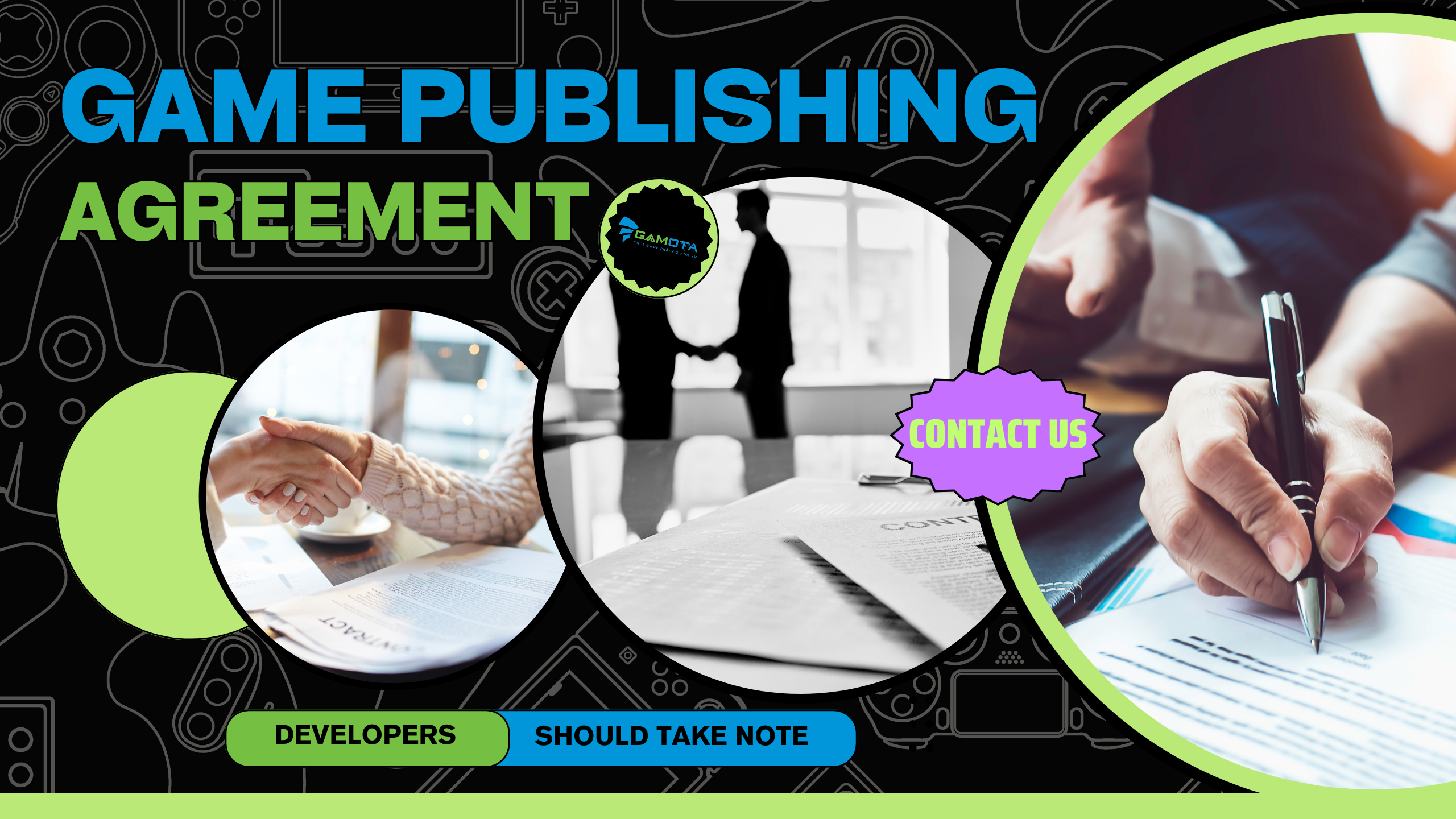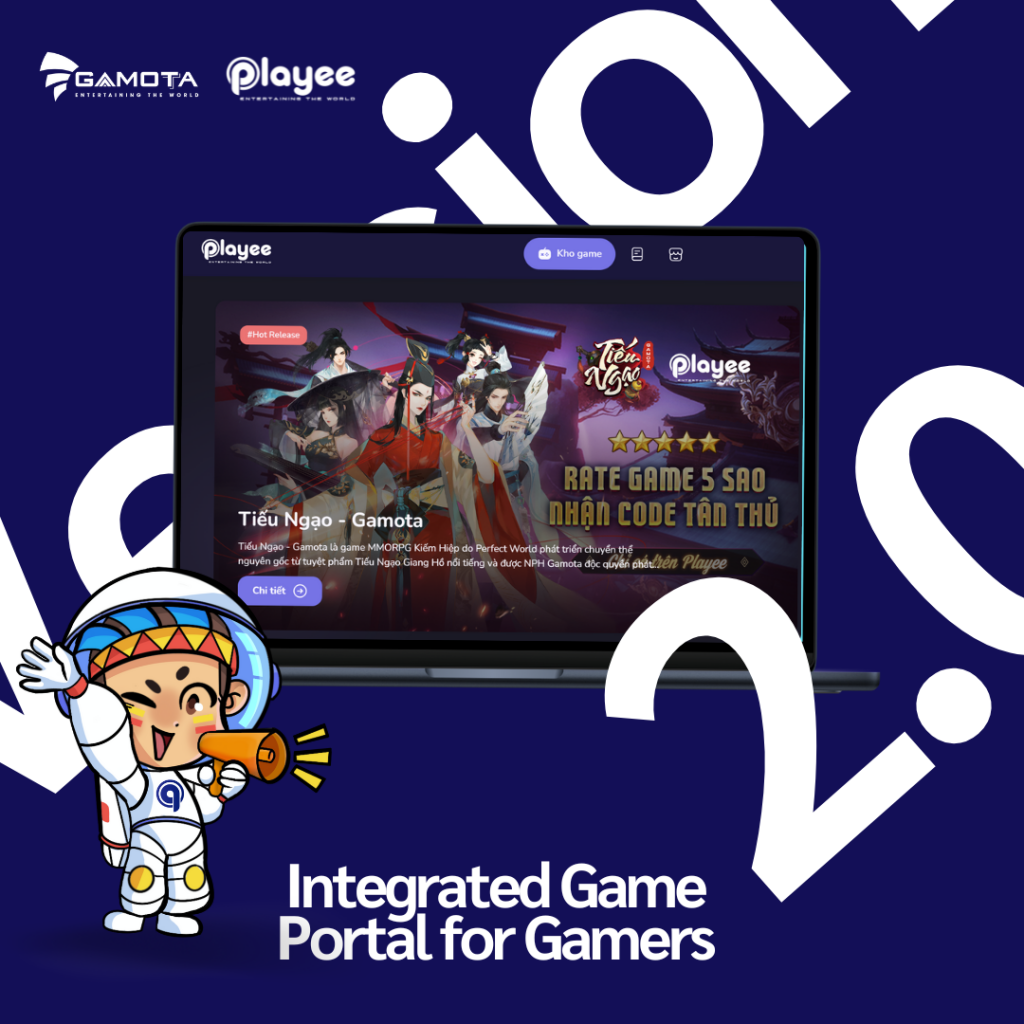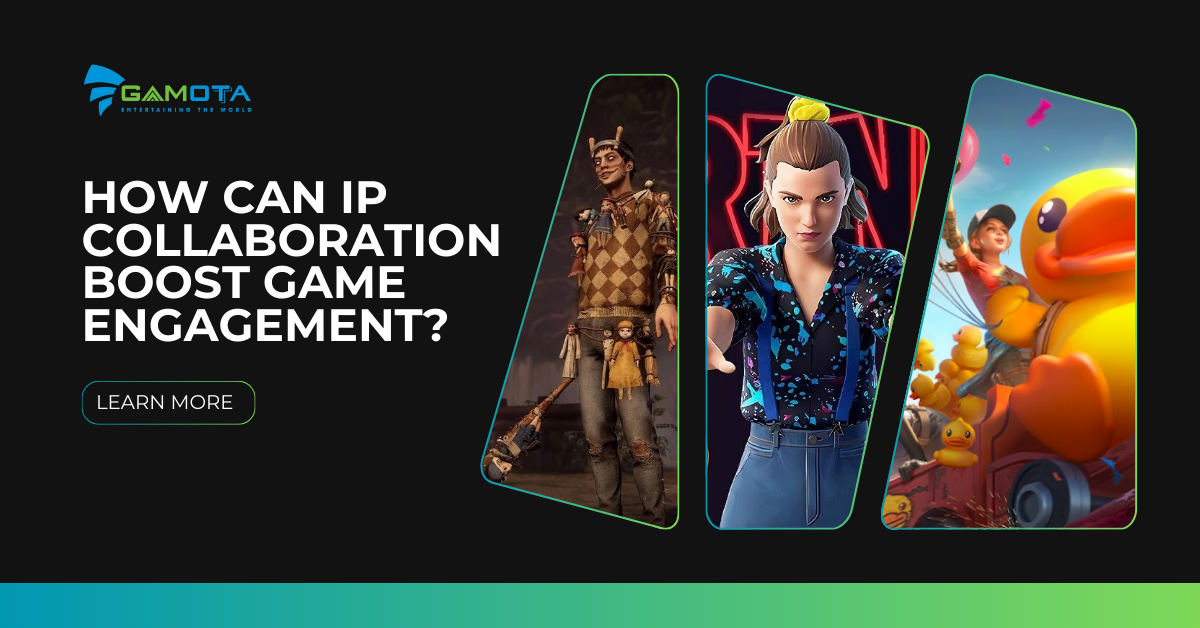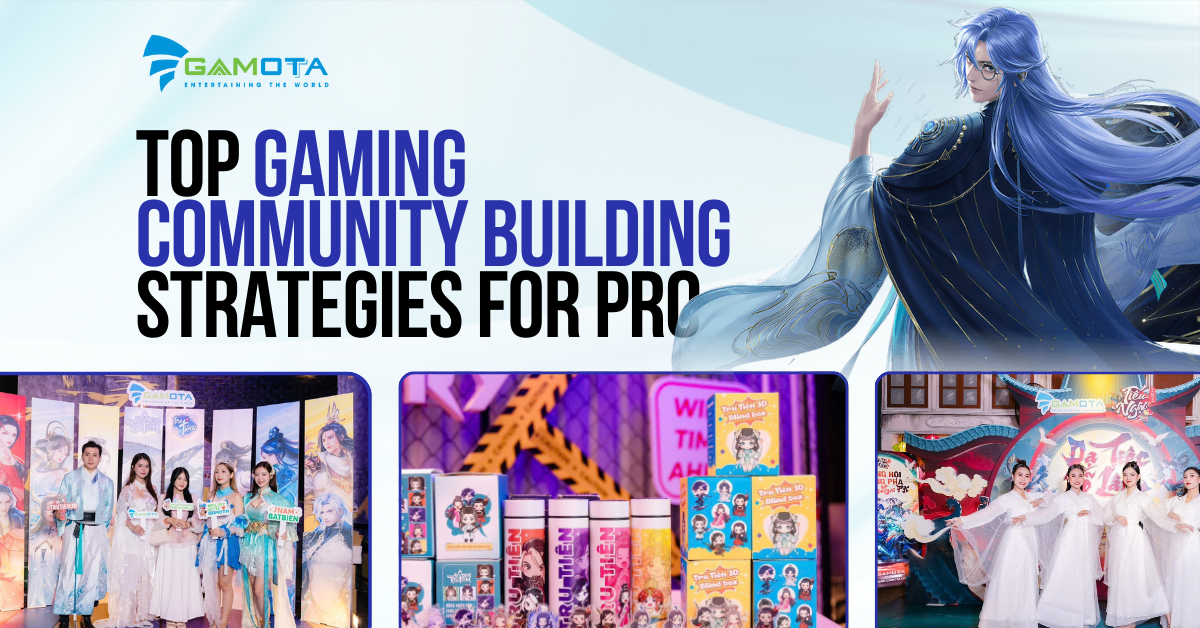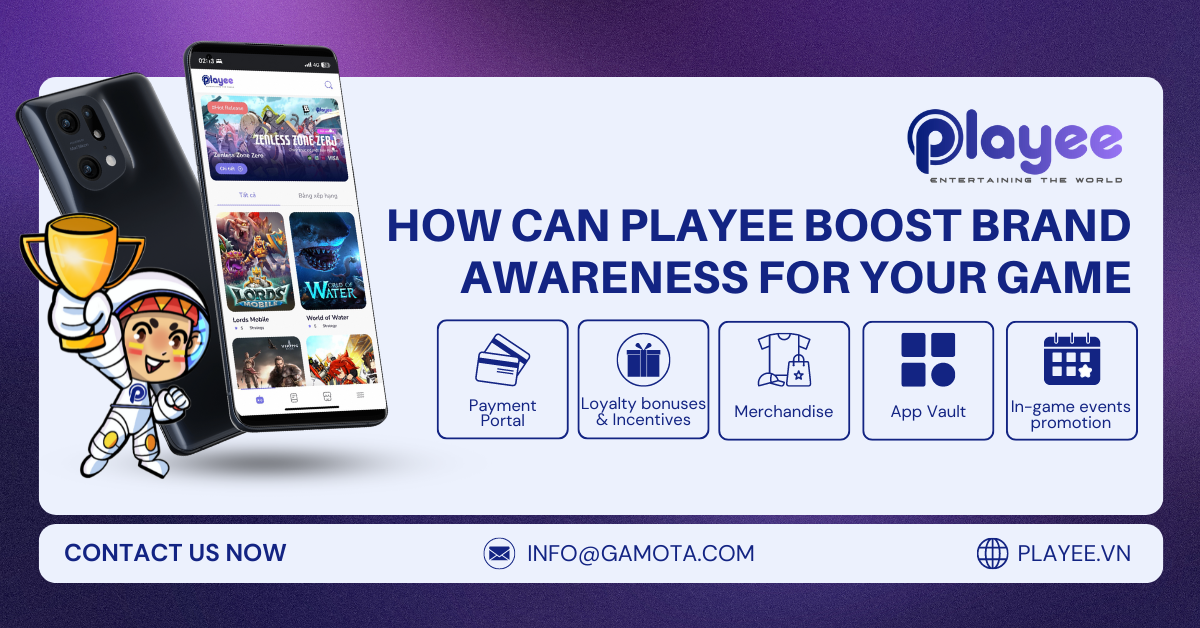A game publishing agreement is a contract between a game developer and a publisher, giving the publisher the option to distribute and promote the developer’s video game. It specifies both parties’ rights and responsibilities throughout the publishing process. Developers must be aware of the terms and conditions of the contract to ensure a fair and successful partnership
1. Rights Assignment
One vital perspective to consider is the rights assignment. Developers should carefully review the agreement to understand if they are assigning the rights for their video game completely or choosing an exclusive license. While assigning rights may be legitimate in specific cases, discussing the necessity of such a deal with the publisher is important. An exclusive license can often give game developers more control and flexibility over their games.

2. License Terms
Developers should address a few important questions when negotiating the license terms. They should make clear how the publisher plans to use the video game and the products that go with it. It’s also important to discuss the possibility of a fixed-term license rather than a lifetime license and determine the license’s expiration date. Developers should consider the territories that the publisher intends to release the game in and whether they are allowed to find partners in specific regions. To avoid any ambiguity, it is essential to define the platforms covered under the license, such as PS, Xbox, PC, iOS, Android, and future platforms.

(Source: Baris Onal)
3. Pre-emption Right
Publisher’s pre-emption rights for new projects are frequently included in publishing agreements. Developers should carefully assess the terms and conditions related to the publisher’s right of first offer, right of first negotiation, and right of first refusal. It’s critical to establish exact terms for the publisher’s responses and arrange the procedures for executing these rights. To ensure greater control over their creative work, developers should aim for flexible forms of the right, such as the right of first offer.
4. Video game development
It is essential to establish clear understanding and agreements if the game development involves joint efforts between the publisher and developer. This involves determining the taken actions if either party faces delays or difficulties during the development process. To ensure smooth collaboration, it is essential to establish acceptance criteria, reporting mechanisms, milestone requirements, and payment terms. Developers should evaluate the publisher’s ability to make timely payments and consider shorter payment terms if payments depend on specific actions.

5. Technical Support
Technical support for the video game somewhat lies with the developer. Developers should assess the achievability of the publisher’s requests and discuss requirements and their deadlines. If the publisher demands a particular team’s cooperation in the development and technical support, it’s vital to define the procedure for replacement and find suitable team members if essential.
6. Financial Considerations
Game publishing agreements are heavily influenced by financial factors. Developers should consider the publisher’s advance payment for game development funding. It means quite a bit to review whether the advance should be recouped and understand the implications of revenue-sharing terms. If a game does not perform well in the market, clauses that require full recoupment of the advance before revenue sharing begins may have a significant impact on developers.
7. Marketing and Promotion
Marketing and promotion are crucial to a game’s success. Developers should examine the marketing plans and strategies with the publisher and ensure that both parties have a common understanding of their roles and obligations. Clear guidelines should be included concerning marketing expenses, the use of intellectual property in promotional materials, and any limitations or restrictions on the developer’s marketing activities.
8. Termination Clause
The termination clause is the conditions under which either party can terminate the agreement. Developers should review this section to understand the conditions that might lead to termination and the outcomes of termination for both parties. To safeguard the interests of all parties involved, fair and reasonable termination conditions must be established.
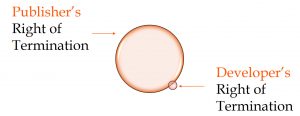
(Source: LegalGamer)
9. Intellectual Property Ownership
The agreement ought to address the issue of intellectual property ownership. Developers should clarify whether they retain ownership of their game’s intellectual property or if there are any provisions for shared ownership or the transfer of rights. Developers should seek legal counsel to ensure that their intellectual property rights are adequately safeguarded.
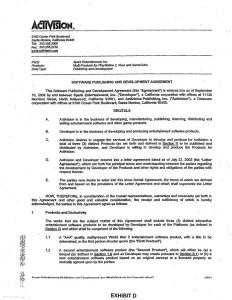
(Gamasutra presents an annotated contract between Activision and Spark Unlimited for 2004’s console title Call Of Duty: Finest Hour)
10. Dispute Resolution
Having a clear dispute resolution mechanism in the agreement can be beneficial in disagreements between the developer and the publisher. To avoid costly and time-consuming legal battles, developers should think about including provisions for mediation, arbitration, or other alternative dispute resolution methods.
11. Indemnification
The indemnification clause safeguards both parties from liability emerging from specific actions or events. Developers should carefully review the indemnification provisions to ensure that they are fair and reasonable. Understanding the scope of indemnification and any restrictions or exclusions outlined in the agreement is crucial.
12. Representations and Warranties
Representations and warranties are statements made by each party about the accuracy of specific information or the fulfillment of certain conditions. Developers should ensure that the agreement includes accurate representations and warranties from the publisher regarding their ability to fulfill their obligations. Likewise, game developers ought to offer precise representations and warranties regarding their game as well as their ownership of intellectual property rights.
13. Confidentiality
During the developer and publisher’s partnership, confidentiality provisions protect sensitive information from leaking out. TDevelopers should carefully review the confidentiality clauses to ensure that they adequately safeguard their proprietary information and trade secrets. It’s essential to establish clear guidelines concerning the handling of classified information and the commitments of both parties to maintain the utmost confidentiality.
Okay, This is a prop game development and publishing agreement pdf, please use it for visualization and teaching purposes and not in real life – Fake Game Development and Publishing Agreement Support for M Shortt Ga
14. Too much? Let Gamota simplify the process for you
It’s sure a lot of things to consider, right? Don’t worry! Collaborating with us will deliver you nothing but the best quality. With our help and consult, your only goal is to create an amazing game and our job is to publish and acquire a new player base for your game in one of the most profitable markets in Asia – Vietnam.
We assure you, our agreements are based on fair and reasonable conditions. Our sales team would conduct meetings and negotiations that focus on simplifying the process but still maintain the core information. Our agreements are established under Vietnam’s game publishing regulations. With our integrated services and tech-based ecosystem, we will scale up your mobile games in terms of revenue, visibility, installation rate, and game lifespan.
So, what are you waiting for, CONTACT US NOW to get more info and advice


